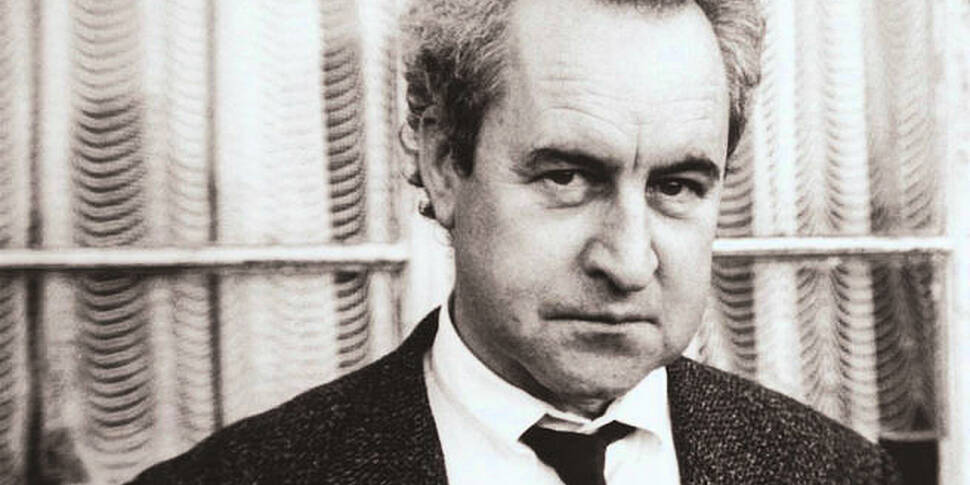Earlier this year Benjamin Black's seventh novel was published. Holy Orders builds on the story of consultant pathologist Quirke as he attempts to answer the questions surrounding the death of his friend's daughter. Like all good crime fiction the unraveling of this tale only reveals further mysteries and deeper reaching conspiracies. Yet "Talking Books'" feature interview this Sunday won't be an analysis of this one book but rather a talk with its great author who has been hailed as 'the heir to [Marcel] Proust, via Vladimir Nabokov'; John Banville.
Born in Wexford in 1945 Banville began his professional writing career as sub-editor for the now defunct Irish Press and by 1971 had his first novel, Nightspawn, and collection of short stories, Long Lankin, published. Continuing his work with newspapers Banville found his voice and style growing as he continued to write and his second novel, Birchwood, earned him awards and prizes. This recognition would continue with his subsequent works and by 1989 Banville had achieved a serious milestone in any author's career; he had been shortlisted for the Man Booker Prize for his seventh novel The Book of Evidence.
This milestone would be eclipsed as Banville's career went from strength to strength and in 2005 he solidified his status as one of Ireland's best living writers with the publication of The Sea. Told through a journal reflecting on times past The Sea tells the story of a man looking back over his life and the losses he has suffered throughout. This book is, so far, the crowning glory of Banville's work and won the 2005 Man Booker Prize as well as being named Irish Book Awards Novel of the Year, 2006, and shortlisted for Irish Book of the Decade, 2010.
With the awarding of the Franz Kafka Prize and the Irish PEN Award Banville's high status in the world of literature has been rigidly confirmed. Despite these multiple awards, being compared to Marcel Proust, and being tipped as a contender for the Nobel Prize for Literature Banville's relationship with the literary world has always been a complicated one. It is probably best surmised in his own words; 'If they give me the bloody prize, why can't they say nice things about me?'
Despite being lauded for his mastery of language and his literary fiction in 2006 John Banville published Christine Falls, the first in a series of crime fiction novels. Under the pseudonym Benjamin Black, Banville has been telling the tale of the surly and depressed Quirke for seven books and counting. With a dark and turbulent past Quirke has learned how to live life the hard way. While his strong character and innocuous job propel him along increasingly complex and dangerous missions Quirke struggles with the everyday struggles of depression, loss, and unrequited love in 1950s Dublin; often turning to the bottle for answers and solace. What is surprising is why Banville, a man celebrated as a great literary novelist, would turn his hand at formulaic crime fiction.
Listen back to 'Talking Books' as Susan visits John Banville in his writer's work-space to talk to him about his books and what it is like being one of Ireland's greatest living authors. Listen in as we hear the story of Banville's life as a writer. Find out about his relationship with the literary world. Learn what it is like being so highly regarded as a writer and why Banville decided to live a second literary life as Benjamin Black.
In the second part of the show Susan speaks with Japanese American author Julie Otsuka about her latest novel, The Buddha in the Attic. Join 'Talking Books' as we delve into the pages that tell the harrowing tales of Japanese 'picture brides'. Shipped from Japan to the unseen shores of San Francisco the eight female protagonists of The Buddha in the Attic give us glimpses into their lives as they journey across the world to new lives in alien lands. Frightened, abused, ignored, forgotten, and used hear how the American Dream manifested for these women and what it was like for Julie to tell their stories that had remained silent for so many years.










